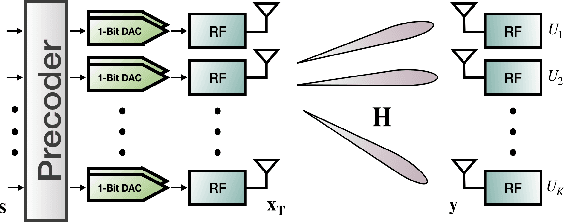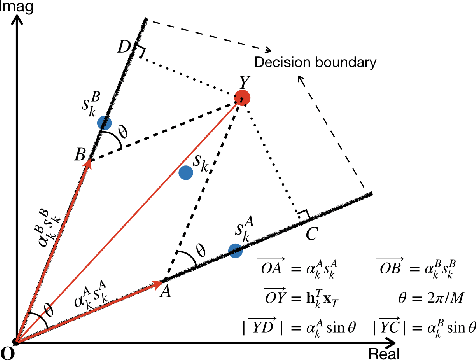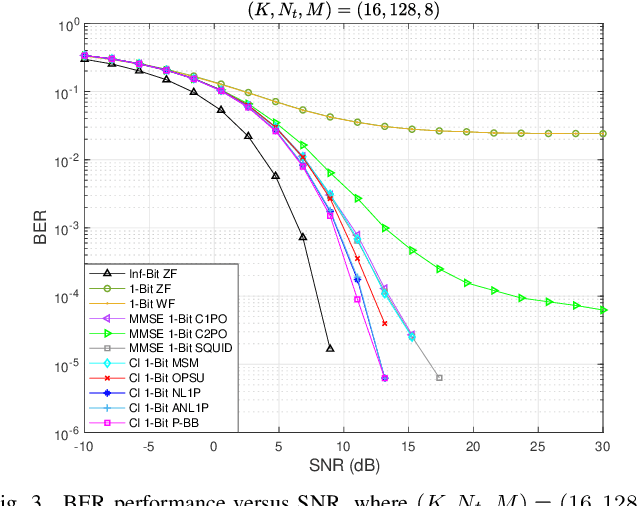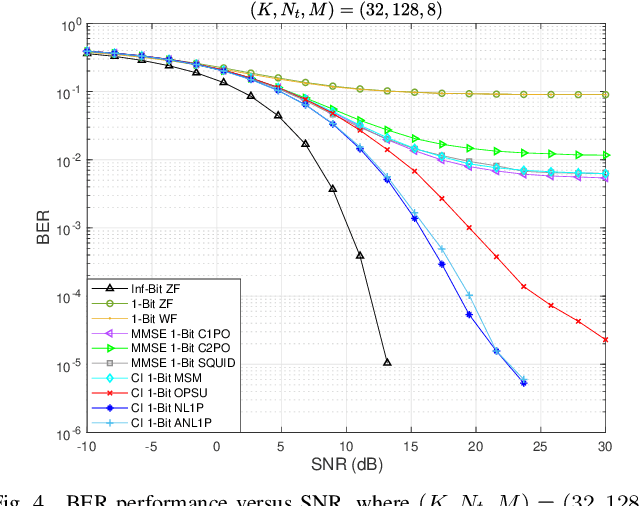CI-Based One-Bit Precoding for Multiuser Downlink Massive MIMO Systems with PSK Modulation: A Negative $\ell_1$ Penalty Approach
Paper and Code
Oct 22, 2021



In this paper, we consider the one-bit precoding problem for the multiuser downlink massive multiple-input multiple-output (MIMO) system with phase shift keying (PSK) modulation and focus on the celebrated constructive interference (CI)-based problem formulation. We first establish the NP-hardness of the problem (even in the single-user case), which reveals the intrinsic difficulty of globally solving the problem. Then, we propose a novel negative $\ell_1$ penalty model for the considered problem, which penalizes the one-bit constraint into the objective with a negative $\ell_1$-norm term, and show the equivalence between (global and local) solutions of the original problem and the penalty problem when the penalty parameter is sufficiently large. We further transform the penalty model into an equivalent min-max problem and propose an efficient alternating optimization (AO) algorithm for solving it. The AO algorithm enjoys low per-iteration complexity and is guaranteed to converge to the stationary point of the min-max problem. To further reduce the computational cost, we also propose a low-complexity implementation of the AO algorithm, where the values of the variables will be fixed in later iterations once they satisfy the one-bit constraint. Numerical results show that, compared against the state-of-the-art CI-based algorithms, both of the proposed algorithms generally achieve better bit-error-rate (BER) performance with lower computational cost, especially when the problem is difficult (e.g., high-order modulations, large number of antennas, or high user-antenna ratio).
 Add to Chrome
Add to Chrome Add to Firefox
Add to Firefox Add to Edge
Add to Edge